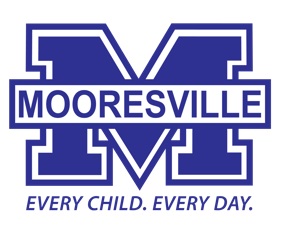
BY STEPHEN MAUNEY
 Recently, the Moorsville Graded School District sent out surveys to our students that created a fair amount of chatter on social media. As the superintendent of schools, I want to take this opportunity to correct much of the misinformation that was shared via social media, and let our community know exactly what the intent of the surveys was and what we plan to do with the information that we gathered. Let me begin by saying that parents can choose to opt their child out of all surveys given by MGSD.
Recently, the Moorsville Graded School District sent out surveys to our students that created a fair amount of chatter on social media. As the superintendent of schools, I want to take this opportunity to correct much of the misinformation that was shared via social media, and let our community know exactly what the intent of the surveys was and what we plan to do with the information that we gathered. Let me begin by saying that parents can choose to opt their child out of all surveys given by MGSD.
Our kindergarten through sixth-grade students were asked a variety of age-appropriate questions about any social and/or emotional struggles they may have. Here is a sampling of the questions:
♦ How often do you say nice things to others or how often do others say nice things to you?
♦ How often do you feel happy, sad, safe?
♦ Can I control my emotions when I get mad?
♦ What makes me happiest?
♦ What makes me sad?
Our seventh- through 12th-grade students were asked a variety of age-appropriate questions about diversity and inclusion. The following questions are from that particular survey:
♦ How often do you have classes with students of different races or cultures?
♦ At school how common is it for students to have close friends from different racial or cultural groups?
♦ How confident are you that students can have honest conversations with each other about race?
♦ How comfortable are you with sharing your thoughts about race-related topics with other students or staff?
♦ What do you wish your teachers knew about your experiences of race or culture at your school?
♦ What is the most important thing your school can do/keep doing to support students of different races and cultures?
In addition to the misinformation on social media, I have received a few emails from concerned parents asserting that these surveys are a way that MGSD is promoting Critical Race Theory, segregation, and racial division in our schools.
Let me clearly state the purpose behind those surveys.
First, it should be no surprise to anyone that our students are dealing with a wide range of social and emotional stresses as a result of the last 20 months. Some are handling those stresses well and some are having a more difficult time with them. I believe the same is true for us adults.
Second, the ability of our students to positively handle those stresses and the related emotions has a significant impact on their ability to learn. I find the following quote by Maurice Elias particularly applicable: “Kids are ruled more by their emotions than by their intellect. Therefore, in order to help them grow academically we must help them develop socially and emotionally.”
Third, our schools are the most diverse environments that the majority of our students will spend their time in. For many, their time outside of school (whether it be in their neighborhoods or in their churches) is spent with other people that look very similar to them. School is the place where most of our students interact with individuals from different races or cultures. It should be no surprise to anyone that there is racial tension present in our society. While the source or sources of that tension can be debated, its presence is real. Therefore, our school district needs to ensure that we are doing everything possible to alleviate that tension in a positive way in order to build cohesion, instead of promoting division.
With all of that said, these surveys give us data directly from our students on how they feel about a variety of topics that impact their ability to connect and learn in our classrooms – namely social and emotional challenges. This information will help our district determine if these social and emotional challenges are prevalent in our district or if they are not significant for our students. By knowing this information, we can make informed decisions on these and other topics, allowing us to best meet the needs of our students moving forward.
It is concerning that people believe we are promoting division by asking students to explain through their own racial and/or cultural lens how they feel in their school (connected, valued, safe, isolated, etc). I strongly believe for all of our students to feel connected, valued, and safe in our schools, we must better understand how the various groups of students – including our white students – feel while at school. This understanding is the only way to equip our students to share those feelings and build empathy. Not talking about issues that impact our students will not make them go away; therefore, we need to gauge how “real” some of these issues are to our students. Surveys are an effective means of doing this.
Finally, to say that with these surveys we are promoting Critical Race Theory, segregating the races, promoting white guilt, and further promoting division is absurd. Quite the opposite is the case. If we cannot help our students handle their emotions in productive ways, have meaningful conversations with individuals who are different from themselves, and treat one another with civility and respect, then we will not be able to effectively help them grow academically and contribute to society in a positive way.
Stephen Mauney, Ed.D., is the superintendent of the Mooresville Graded School District.




Well said! Sorry that something so positive and coming from such a good place has to be turned into something negative. Thanks for all you do to educate and support children in our community.
I’m glad this is being asked of our children. There are problems, and ignoring them hasn’t fixed them yet. Every child, every day.
This is awesome Dr. Mauney & MGSD staff! It is so important to address our students’ emotional, mental and social well-being so they can continue to be at the very best academically.